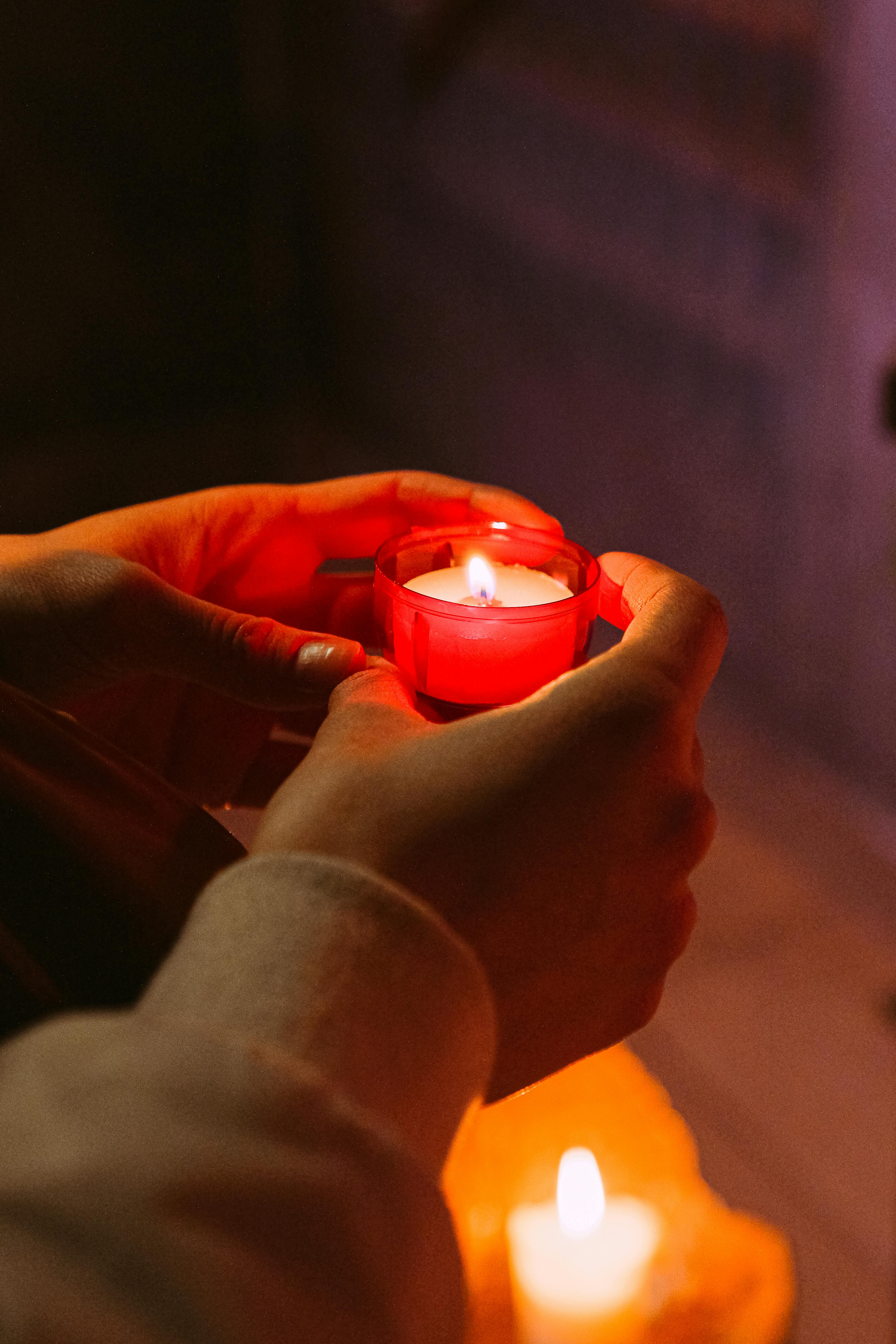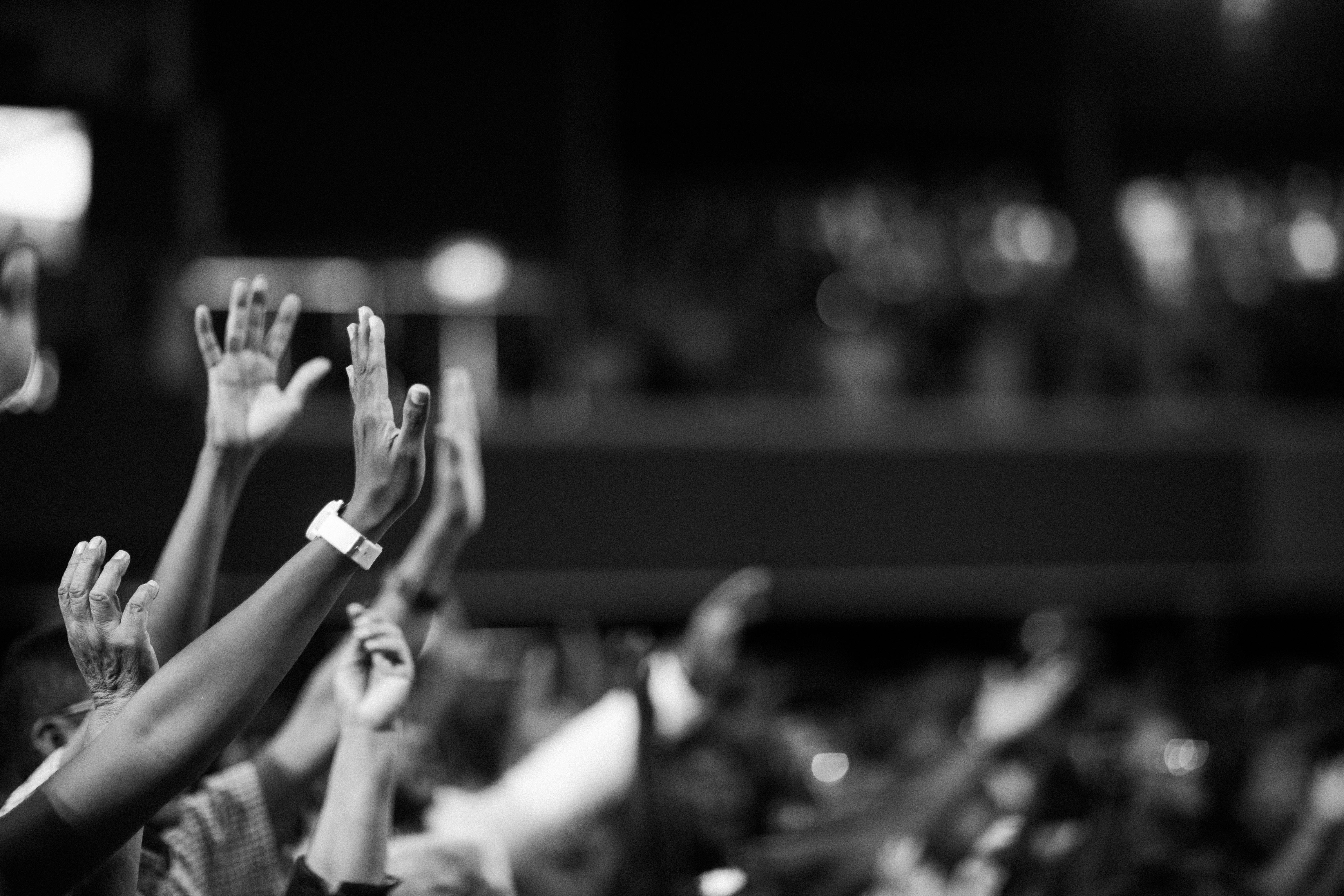Student Athlete, Receive The Affirmation Of A Better Father

Recently, I facilitated a discussion about motivation for a group of college football players. Football requires extreme sacrifice. To compete, a young man must dedicate his time to training and sacrifice his body on the field. So I asked, “What motivates you to practice and play football? What drives you to play this grueling sport?”
“Because I love the game.”
“Ball is life.”
“I want to make it to the League.”
The answers varied from pithy to profound, and eventually we moved beyond platitudes.
“This is the place I receive encouragement; I want the praise.”
“The only time my dad calls me is to talk ball; it’s all we talk about it, and I can’t lose that.”
“My stepdad told me I’ll never amount to anything; this is my chance to prove him wrong.”
The mood was somber as these men shared their moving confessions. Nearly every time I delve into student athletes’ motivations, I uncover their deep desire to connect with their fathers. For many, sport is a means to that end. Years ago, one colleague told me, “All football players—and men in general—have a father wound; some are just more severe than others. For some, it’s a paper cut; for others, it’s a shotgun blast to the chest.”
No earthly dad—no matter how good—can fulfill the students’ paternal longings. But thankfully, there’s a better Father. Behind their grind and relentless drive, many young athletes seek the unconditional love and affirmation only God the Father can provide.
Our Paternal Longing
Recently I watched an interview with UFC fighter Alexandre Pantoja. At the time of writing, he’s the reigning flyweight champ. After he became UFC champion, he said, “My mom [took] care of me and my two brothers alone. Now, Dad, you proud of me, dad? You proud of me?” Pantoja is a warrior. In the middle of the octagon with a gold title belt around his waist and a mixture of sweat and blood dripping from his cheeks, he publicly voiced his desperate paternal longing. Read the biographies of the greats: Michael Jordan, Tiger Woods, and Andre Agassi had various kinds of relationships with their dads, but all achieved GOAT status in pursuit of making their fathers proud.
Like UFC, American football is distinctively violent. In most sports, contact is incidental. In football, contact is central to the game. Players are praised for weaponizing their bodies. Coaches reward players who produce “big hits” or “pancakes” or who “lay someone out.” No one would accuse college football players or UFC fighters of being soft (at least not to their faces). Yet these players are wounded warriors.
Serving as a campus minister for nearly 20 years, I’ve seen again and again how many young men fight, tackle, and strive not for gridiron glory but for fatherly validation. In its absence, they seek validation elsewhere. I’ve seen this in the locker room and in my own life. I’m the son of a good, godly father. But I was also the victim of abuse at a young age. In the aftermath of that trauma, I felt less than a man. Driven by an insatiable appetite to feel manly, I threw myself into hypermasculine activities. To borrow a phrase Jeffrey Marx attributes to Joe Ehrmann, I sought validation on the ball field, in the bedroom, and with my billfold. Looking back now, I recognize I was searching for my heavenly Father’s approval.
Good News of the Father’s Affirmation
The message of how God the Father provides divine validation through his Son’s substitutionary work is one both unbelieving student athletes and believers need to hear.
1. Unbelievers need to hear why Christians call God ‘Father.’
When I share the gospel with unbelieving student athletes, I explain that God relates to his followers as a father to a son rather than as a coach to a player. By the time they’re in college, most athletes have competed for a self-centered, transactional coach. A relationship with that type of coach is marked by the phrase “What have you done for me lately?”
God relates to his followers as a father to a son rather than as a coach to a player.
When the player “balls out” and wins games, the coach shows him love. But the moment the player is injured or blows an assignment that busts a play, the coach’s affection cools and he becomes relationally distant and withdrawn. Such relationships hinge entirely on the player’s performance. To reconnect with this coach, the athlete must play and practice even harder.
Many athletes bring a performance mindset to the God of the Bible. So I explain that God is a selfless Father, not a selfish coach, and that the Son, by his perfect performance and propitiatory death, has already secured our right standing in God’s sight. You don’t have to earn your spot. You will be adopted into his family if you trust in the Son.
I’ve seen it more times than I count. Once a young man recognizes God as a loving Father and trusts in Christ’s work for him, he’s more free to play the game the right way. He begins to compete for God’s glory.
2. Believers need a daily dose of ‘vitamin D.’
Vitamin D improves bone density, muscle function, and immunity— all essential functions for high-level athletes. Even more important is our spiritual vitamin D—or vitamin Dad. A mentor taught me that phrase, and I know it’s cheesy, but you won’t forget it.
I tell the young men in my ministry to take their daily vitamin D, to start their day meditating on the Father’s love as revealed in his Word. Like King David, set aside time to “hear in the morning of [God’s] steadfast love” (Ps. 143:8). After shutting off your alarm clock, reach for your Bible instead of your phone. You start each day setting your heart on a message. YouTube tells you life is about entertainment. Instagram says image is everything. Even email communicates that life is about what you get done. Only God’s Word grounds you in who God says you are rather than what you must do each day. If you’ve trusted in Christ, you’re God’s beloved son. That’s a better motivation for life.
Only God’s Word grounds you in who God says you are rather than what you must do each day.
Many men I minister to in the locker room were raised by single mothers. In a recent team Bible study, I asked a small group, “Who modeled manhood for you?” One player shot up his hand and immediately responded, “My grandmother!” This player wasn’t alone. Several teammates also pointed to mothers and grandmothers as their most significant role models. Their homes were void of masculine presence and validation. Whether they realize it or not, many of them compete to one day hear the Father’s loving “Well done.”
As our conversation continued, these men divulged their pain and unmet longings. I reminded them, “We all have pain. The question is, what are you going to do with your pain?” On game day, when a player experiences a pull, tear, sprain, or break on the field, he immediately limps to the team trainer. In the same way, our spiritual wounds are an invitation from the Father to come to him. He’s the perfect Father who offers us his constant presence, loving affirmation, saving declaration, and divine healing. Let’s go to him.

